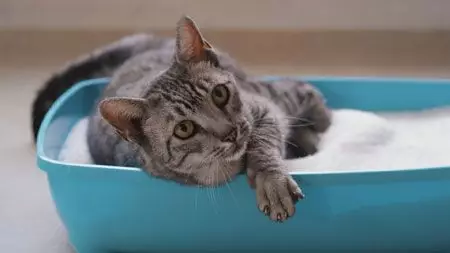The presence of cats in a home brings joy, companionship, and inevitably, the challenge of managing their litter box odor. With more people working and spending time at home, the smell emanating from a litter box has become increasingly pronounced. Fortunately, there are effective ways to mitigate these odors, ensuring a fresh living environment while maintaining your cat’s hygiene.
One common misconception among cat owners is that placing a litter box in a remote area will help minimize its smell. However, this approach can backfire if the chosen location lacks proper ventilation. Avoid relegating the litter box to a seldom-used room, as stagnant air can intensify odors. Instead, aim for a well-ventilated space. Areas with good airflow allow odors to dissipate quickly, preventing them from lingering long after your cat has used the box.
Factors such as humidity also influence where a litter box should be situated. For example, many people instinctively place their litter boxes in bathrooms, but this can be problematic with certain types of litter. Super-absorbent litters do not perform optimally in humid environments, leading to increased odors and the need for more frequent replacement. Therefore, consider the characteristics of your home and the specific litter type to determine the most suitable location for your cat’s bathroom needs.
Many cat owners fail to fill the litter box to the recommended level, mistakenly believing that using less litter will save money. However, a half-filled box may result in more odor due to liquids sinking to the bottom, which can become a breeding ground for smells. For optimal odor control, a depth of 2-3 inches is often suggested. This depth allows waste to be absorbed effectively without lingering in unpleasant puddles.
Moreover, the litter box type itself plays a significant role in odor management. Open pans might be simple and accessible, but they leave little to no barrier against smells. In contrast, covered litter boxes offer some odor reduction, though they are not a standalone solution. It’s also essential to maintain an ongoing cleaning regimen tailored to the type of litter used. Regular maintenance, including scooping waste daily and replacing litter as needed, is crucial for minimizing odors.
An often-overlooked factor in managing household odors is the nutritional content of your cat’s food. Certain types of cat food – particularly wet food or fish-flavored varieties – can lead to noticeably stronger odors in waste. Dry kibble, in contrast, generally produces less smell. While dietary changes are not the sole solution, they can be a pivotal component of an overarching approach to controlling litter box odor. Consult with a veterinarian for specific recommendations that cater to your cat’s needs.
As part of a holistic strategy for controlling litter box odors, cleaning cannot be overlooked. The frequency and method of maintenance depend largely on the type of litter you choose. For instance, clay litters require regular sifting and more frequent complete changes. On the other hand, crystal litters, like PrettyLitter, require less maintenance. These litters can last several weeks with minimal intervention – simply scoop waste daily and replace the entire contents when needed.
Crystal litters, such as PrettyLitter, are particularly effective in controlling odors, as they are made from silica gel beads. These beads not only absorb moisture but also trap and neutralize odors at the source, creating a fresher environment for you and your feline friend. Unlike traditional scented litters, which merely mask odors, crystal litter removes them outright, allowing for a substantial reduction in unpleasant smells.
If you find that despite your best efforts, the litter box odor persists, it may be time to explore a switch to a high-performing litter like PrettyLitter. Combining superior odor control with long-lasting freshness, this product offers cat parents a practical solution to the ongoing challenge of litter box smell. As a bonus, new customers can often find discounts or promotions that make switching even more appealing.
Taking these steps not only improves your living environment but also ensures your cat has a pleasant and clean place to go. It’s important to maintain regular practices for odor control including choosing the right litter, ensuring proper litter box maintenance, and possibly modifying your cat’s diet. Doing so will transform your home into a more enjoyable space, free from unpleasant odors, allowing you to enjoy the companionship of your beloved pet without the unwanted smells.

